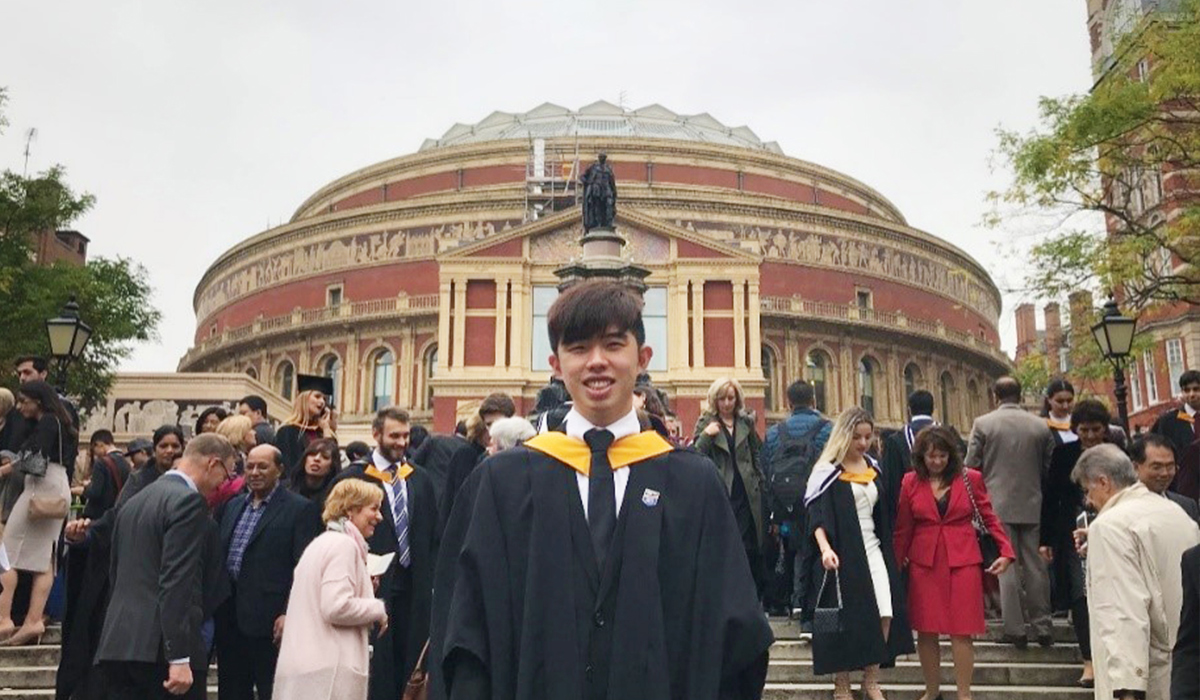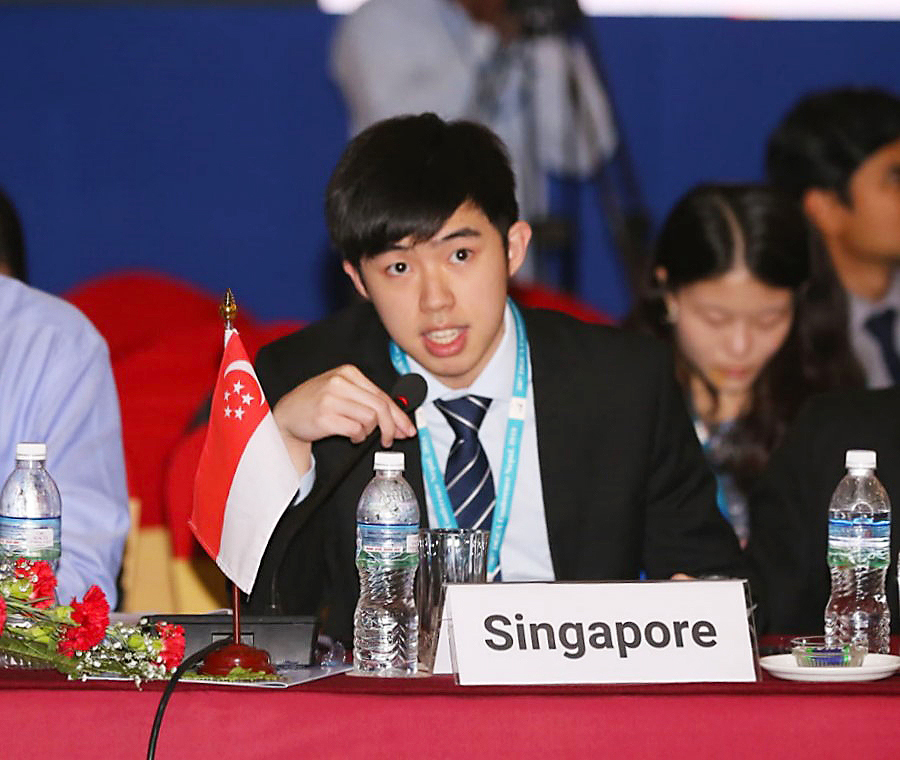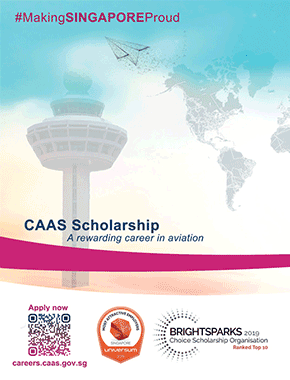Tan Wei Yan presented a paper on behalf of Singapore at the 56th Conference of Directors General of Civil Aviation, Asia and Pacific Region (56th DGCA Conference).
T he backbone of Singapore’s aviation industry, CAAS does a little bit of everything and a lot of everything else. Its work includes almost anything related to aviation, from ensuring air travel is safe and efficient to developing our local air industry via partnerships and programmes.
Broadly, CAAS’ roles are to enable the growth of the air hub and aviation industry, oversee and promote safety in the industry, provide air navigation services, and develop Singapore as a centre of excellence for aviation knowledge and human resource development.
Given its wide-encompassing and impactful role, CAAS is a fast-paced, dynamic workplace where there is never a dull moment. Tan Wei Yan, a recipient of the CAAS Overseas Undergraduate Scholarship, tells us what it is like.
What motivated you to take up the scholarship?
I have always had a deep interest in Physics as it helps me understand how the world around me works. CAAS was one of the few organisations that fulfilled my two criteria – a career in the aviation industry, and the flexibility to study the discipline of my choice. CAAS allows scholars to pursue any discipline they wish (except medicine and dentistry).
Another ‘draw factor’ was the luxury of working in Changi Airport, where I knew I would be able to watch planes fly by in close proximity.
What are your roles and responsibilities at CAAS?
I am part of the Air Traffic Management Plans and Development (ATMPD) division, which is responsible for charting the long-term strategy of the Air Navigation Services Group (ANSG).
As part of CAAS’ effort to stretch and nurture its officers, I took up two portfolios within my division — one in Masterplan and the other in Performance Management. In the former, I am responsible for the long-term strategic planning of ANSG as well as ensuring that CAAS’ national plans are aligned with regional and international plans. In the latter, I monitor and analyse the performance of CAAS’ Air Traffic Services (ATS), use data analytics to identify the factors that cause delays, and develop new measures to enable CAAS to continue delivering top-tier performance.

Tan Wei Yan is a recipient of the CAAS Overseas Undergraduate Scholarship. He holds a bachelor’s degree in Physics from Imperial College London and a Master of Philosophy in Technology Policy from the University of Cambridge.
What are some opportunities in the organisation you’d love to explore in the near future?
I am looking forward to working in other groups within CAAS, particularly the regulatory and aviation development groups. This will allow me to understand better how CAAS operates as a whole, and more importantly, how it achieves that fine balance across its various functions.
So, I am thankful for the opportunity scholars are given to go through regular job rotations. As part of the CAAS’ efforts to expose scholars to the various functions within the organisation, scholars are rotated every two years. Officers are also given the opportunity to be attached to other organisations in the transport or aviation sector to gain greater industry experience and insights.
How have you applied what you have learnt in university to your job at CAAS?
As physics was an unconventional choice of study compared to my peers, I was pleasantly surprised when CAAS supported my decision to study it. Apart from equipping me with technical skills such as statistics and computing, my degree in Physics also honed my logical reasoning and critical thinking abilities, which are invaluable in my day-to-day tasks of using data analytics to solve complex and novel problems.
On the other hand, my Master of Philosophy in Technology Policy taught me how to break down complex issues and analyse them through various lenses, to better formulate and present policy proposals to various stakeholders intuitively and succinctly.
What is the culture at CAAS?
The transition from school to the working world was an exciting yet daunting one, as I did not know what to expect at the outset. There was so much for me to learn!
However, I am thankful for my colleagues who have been extremely helpful and patient with me. They were willing to repeatedly go through basic concepts which were second-nature to them, and never turned me down whenever I needed their assistance. Such warm interactions really made CAAS feel like a second home, and definitely made the transition process a lot smoother.
I also have supportive bosses who are not afraid to let greenhorns take up challenging and large-scale projects, while providing sufficient guidance. The responsibilities that my bosses entrusted me with definitely boosted my confidence as an individual.
Any words of advice for juniors looking to take up this scholarship?
In CAAS, no two days are the same. There are always exciting opportunities to capitalise on or complex challenges to overcome. If you are looking for a career that is dynamic, fast-paced and multi-disciplinary, CAAS would be a perfect fit for you.
CAAS is committed to nurture and develop her staff members but also sets high expectations for them. Prospective scholars should possess an open-mind as well as the confidence to take on additional roles and responsibilities. However, rest assured that the organisation will equip you with the necessary skills and experience needed to rise up to the challenge.


